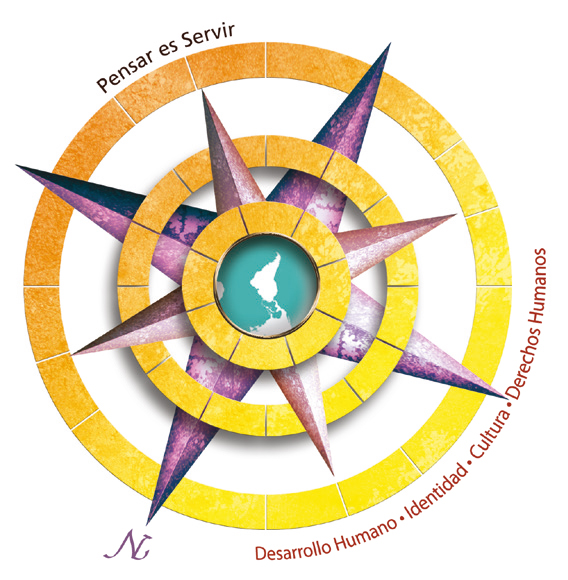
Temas de nuestra américa
e-ISSN: 2215-3896.
(Enero-Junio, 2022). Vol 38(71)
DOI: https://doi.org/10.15359/tdna.38-71.11
Open Acces: https://www.revistas.una.ac.cr/index.php/tdna
e-Mail: temas@una.ac.cr
Licencia: CC BY NC SA 4.0
DOSSIER
Young Afro-Costa Rican voices waiting an awakening
Voces jóvenes afrocostarricenses a la espera de un despertar
Jovens vozes Afro-Costa-riquenhas à esperam de um desperta
Shalaisha Barrett-Parkinson
Escuela de Administración Educativa
Universidad de Costa Rica
Fundadora de Limón Escribe
Abstract
This essay offers a walk through the events of Afro-Costa Rican culture, to present motivations and challenge the young Afro-Costa Rican generation and induce an awakening of their literary voice.
Keywords: Blackness, Flowers of Diaspora, heritage, literary expression, Temas de Nuestra América [Topics of Our America], Young Afro-Costa Rican generation
Resumen
El presente ensayo brinda un recorrido por los acontecimientos más aflorados de la cultura afrodescenciente, para plantear motivaciones y lanzar retos a la generación joven afrocostarricense e inducirla a un despertar de su voz literaria.
Palabras clave: expresión literaria, Flores de la Diáspora, herencia, jóvenes afrocostarricenses, negritud, Temas de Nuestra América
Resumo
Este enssaio propõe um passeio pelos acontecimentos da cultura afro-costa-riquenha, para apresentar motivações e desafiar a jovem geração afro-costa-riquenha e induzir a um despertar da sua voz literária.
Palavras chave: expressão literária, Flores de la Diáspora, juventude afro-costa-riquenha, negritude, património, Temas de Nuestra América.
In today’s Costa Rica where shared efforts come together in daily life to compensate for any gap of inequality, discrimination and stereotypes, literary expression deserves to manifest the embrace extended by the skins that inherited us with freedom from all forms of slavery and servitude.
The joy of writing about the nuances of coexistence in Costa Rica and the future of the Afro-Costa Rican generations requires opening the door to passion, sowing the seed and nurturing the roots so that more authors of the young generation of Afro-Costa Ricans can germinate.
The younger generation of Afro-Costa Ricans needs to rediscover their combative roots and take ownership of their heritage in all tenses, to have an effect of identity, belonging and pride that ends explanations from other skins about our hair, accent or the beating of our drums.
In whose hands is it that girls and boys are proud of their beauty and rethink themselves from within, from their reflection? Whose responsibility is it that the imaginary that generations are to build is a reflection that represents us and empowers us upon reading?
The power of the word restores self-esteem, frees from experiences that have hit the mind and heart, restores harmony between the nose, gastronomy, the Creole language of Limon and dance.
Half-truths need to be completed to understand and oppose living a sad history of dispossession of properties, harvests and confiscations that once made us squatters in our own land.
The Costa Rica of today urges the power of the word in the hands of young Afro-Costa Ricans who value their roots watered with blood; country painted of rights and democracy that gives number to articles, then that the vigilance of the State that works for the cultivation of languages and customs is active in the word of those who have been a minority in the classrooms, in the workforce, political positions and in literary expression.
The portraits of hate and self-deprecation must be drowned out through the Afro-Costa Rican word as a non-exchangeable heritage of the young generations. Literary expression is often born from pain and materializes until there is a halt and reconciliation with blackness, this ends with the internal struggle and the reflection in the mirror is daily, even in many, so if this battle is daily, literature urges to be habitual.
The young generations cannot wait for others to be their voices or for the voices that represent them to be easily enlisted and for spaces to remain. The task requires answering what others assume, it needs to confess: what is dancing like a black or what is singing like a black? It is necessary to dismantle an ocean of words of structural racism and to be the percussionists who retract the history of blackness, unjust since the times of the railroad track spikes, the record of complexes, the skin geologists and the discrimination from black person to black person.
The alarm for the activation of the literary dynamism of the generation of young Afro-Costa Ricans calls to write about the unknown and hidden, of jokes about ourselves, at which we have laughed without enjoyment, feeling that we defrauded our ancestors and the courageous legacy that demands owning a voice of responsibility, respect for our black brothers, the burlesque and pejorative, the betterment and legacies of Limonense people and rescue of the Creole language.
What about those who have not owned their culture? Certainly the transcendence of literature has raised the community of Afro-descendants, however, the generation of Afro-Costa Ricans needs to preserve and take the heritage that Africanized us and search for the roots and the proclamation of our identity, to embrace a literary era that removes masks, from one’s own voice and experiences, peace and counterpoint.
There is no one who will make changes for us, nor can we expect others to immerse themselves in the importance of our economic, social or political participation and to relate the difficulties of such inclusions that for many years were under shadow, but does it dawn from the young voice of Afro-Costa Ricans the commitment to change?
I motivate the young generation of Afro-Costa Ricans to venture into literature with novels, stories or poems that show our true identity and write with effort about the cost of our dignity, we are on time! That investment in literature coming from the youth has the power to vacate in minds the hindering role that questions: why my skin, hair or nose?
We need a literary echo of the new Afro-Costa Rican generations which are called to discover the passionate task of writing from blackness, daughters and sons of allied black voices who defend their future.
Instituto de Estudios Latinoamericanos (IDELA)
Universidad Nacional, Campus Omar Dengo
Apartado postal: 86-3000. Heredia, Costa Rica
Teléfono: +506 2562-4056
Correo electrónico temas@una.ac.cr
/portada-38-71.jpg)


